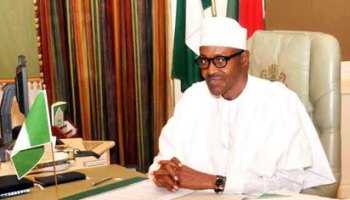
Most Nigerians would admit that life is hard. Harder than we thought it would ever be. Many are getting disillusioned, wondering when the succor will arrive. Others are losing jobs, livelihood, the roof over their heads… In parts of the country, people are now regularly exchanging their children for staple food in a show of hopelessness and desperation. Others ‘kidnap’ pots of food from different fires. The government has asked that we be patient, and so patient we are, howbeit painfully.
One of the sectors that is a surefire bet for government, is the non-oil export sector. It is actually a Nigerian phenomenon. I have heard Nigerian ministers speak about “non-oil sector” abroad with the assumption that every country in the world has an oil, and non-oil sector. It doesn’t work like that in many other places, but that is our reality. The potentials of Nigeria’s non-oil sector, is limitless, because it covers everything from solid minerals, to food crops, to cash crops, to services. But out of the line up of usual suspects, let us single out food crops for its importance to the economy, and indeed to the global economy and to the sustenance of human lives everywhere. Let us also single out agricultural products in general for another reason; I have a particular distaste for the extraction of solid minerals because of the way it devastates the environment. Agricultural products don’t quite do that, for they are largely regenerative.
A promise broken
And so, because of these observed importance, the Federal Government of Nigeria put in place some incentives for exporters in the form of what they call Export Expansion Grant (EEG). The EEG is designed to encourage investors in this sector, akin to the type of encouragement that their peers get in developed countries. As a mater of fact, developed countries subsidize their exporters and especially farmers, in more ways than one. I recall reading Joseph Stiglitz’s ‘Making Globalization Work’ wherein he wrote that every cow in Europe gets a subsidy of $2.00 per day. The idea behind this EEG incentive is that these exporters are absolutely critical to the ability of Nigeria to generate foreign exchange to fulfill its own trade and other obligations. On many occasions, investors have been attracted into the export sector solely because of this promise. Indeed the EEG has served as a risk management tool to exporters. This is because when there is volatility in the price of commodities – as happened recently and often happens – the EEG may be all they will have to rely on for survival. These EEGs are paid to qualifying exporters in the form of Negotiable Duty Credit Certificate (NDCC), meaning they are not paid as cash, but used as a net off for those who have import duty to pay. They are thus ‘negotiable’, in that they can be passed on to other users at a discount.
But since 2010, the Nigerian Customs Service started rejecting the NDCCs and since 2013, the Federal Government of Nigeria has virtually ‘ceased’ this incentive, alleging among other things, that there were scams in that sector, and that it wasn’t getting its bang-for-the-buck. This has led to a serious downturn in Nigeria’s non-oil export sector, according to the Nigerian Export Promotion Council (NEPC), and calls on the government to do the needful; at least to resolve and clear backlogs till date. Industry players have also stated that indeed they need to know the extant rules and regulations and framework with which they shall operate going forward.
The hemorrhage
Figures obtained from NACCIMA Export Group and the Organized Private Sector Export Group (OPEXA), show that because of this disincentive, non-oil export dropped from its peak of $3billion in 2011, to about $1.5billion in 2013. That is a sheer 50% drop. An NEPC report also shows that N109billion worth of NDCCs is with Nigeria’s exporters unutilized because Customs stopped recognizing the instrument! Outstanding claims from exporters total N123.5billion, and another N38.1billion has been filed with the Ministry of Finance, which has ignored the claims. The government of President Goodluck Jonathan turned blind eyes and deaf ears to the plight of exporters in the dying days of his administration. At some point, the government proposed to pay, but subject to a huge ‘haircut’, that sounds more like beheading. It is unbelievable that such a sector could be treated with so much unconcern, and this situation left to fester without resolution, despite a series of audits and reports, and a damning verdict from the NEPC, which has stated that as a result of this impasse, investment in that sector has diminished by 64%, while employment declined by 53%. Hundreds of thousands of workers have been thrown into the streets as a result of this decline, with concomitant dire consequences for their dependants. That should really worry government and it should stop paying lip service to the promotion of exports.
Quid pro quo
On a more general, but no less important note, it is imperative for the government of President Muhammadu Buhari to put a keen focus on non-oil export. It is actually a worn-out cliché. Every state and local government in Nigeria says the same thing. The point is, how? For starters, this is Nigeria’s lowest hanging fruit and it needs to be plucked. Especially for the Agricultural produce aspect, encouraging export is part of the big picture of refocusing Nigeria on the land, and on sustainable development. A few companies have invested huge amounts in our Agric sector lately, helping Nigeria to utilize in an optimal fashion, some of its erstwhile uncultivated arable land. These companies must be encouraged because they are the real investors; what they spend on is real, not paper money on the stock exchange. The government also needs to set a new standard in keeping its words to all and sundry.
The world looks forward to a new rhetoric about Nigeria, and the word on the street in global circles is that Nigeria has turned a new leaf. The Archbishop of Canterbury expressed confidence in President Buhari while the erstwhile PM of Britain was ‘slagging us off’. Ghanaian hero, Jerry Rawlings, recently restated his hope in our president as well, when he urged the superpowers to support Nigeria in its war against corruption because we now have our best chance under President Buhari.
The baton is thus in the hands of the present government, and especially in the hands of the Ministers of Trade, and his counterpart in Finance. The minister of trade, being a business-savvy individual should impress the urgency of the moment on his principal, more so as the Export Promotion Council is one of his parastatals. It is time to show that they are different from the former team whom they are presently investigating for different forms of infractions. The new team needs to silence their critiques in more ways than one, by showing that they are mindful of goings on in the economy and that they have integrity.
This unnecessary tiff must be put behind us so that the nation may make economic progress. It is also important to act swiftly to send the right signals, and consolidate the new status of Nigeria as a country that is not only aware of its sundry problems, but is also now working assiduously on solutions.

 Join Daily Trust WhatsApp Community For Quick Access To News and Happenings Around You.
Join Daily Trust WhatsApp Community For Quick Access To News and Happenings Around You.


